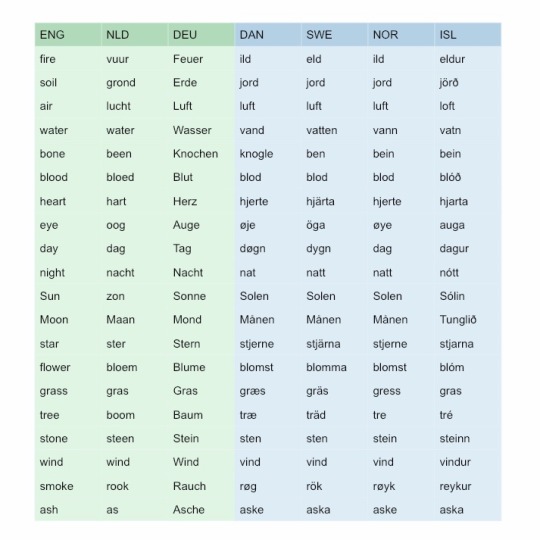#will refrain from complaining about the misdirectional arrowheads
Explore tagged Tumblr posts
Text
prev tags: #why would you even choose 'soil' as the equivalent of 'erde' and 'jord' that makes zero sense#jord means so much more than just 'soil'#just like earth in english can mean soil or ground or the planet we're on
What happened seems clear enough to me at least: it's a conflict between English as a metalanguage and English as a topic.
The basic-vocabulary term is often at least glossed as 'soil', to make clear that what we want is a word for the material (and not for, say, the entire planet). But yes, English the basic vocabulary term for 'soil' is earth. There's a couple other cases where this often comes up if you are both glossing things in English while collecting terminology also in English itself, e.g. I would argue that the basic English term for 'intestines' is guts, even if 'intestines' is less ambiguous as a gloss.
I also see someone complaining in the tags that Dutch has the same error: grond means more centrally 'ground', and the basic term that should be listed here is the usual Germanic word aarde. And I'd add that Swedish dygn means primarily 'a period of 24 hours' — 'day' in the usual sense of a light period is dag. The same mistake perhaps in Danish too but I don't know it well enough to tell you which one is primary.
Sometimes any unclear glossing issue like this also gets handled with multi-word phrases, e.g. 'lie (down)', to avoid confusing this with 'to tell untruths'. In this case too though, one will need to remember that the basic vocabulary term of English is still just lie, not the postpositional phrase. Or that what is sought in other languages is the imperfective sense, 'to be lying down', not the inchoative sense, 'to lay oneself down, assume a lying position'; with posture verbs, very commonly these will be two different words.
A comparison of some basic vocabulary in Germanic languages 💙

(left to right: English, Dutch, German, Danish, Swedish, Norwegian, Icelandic. West Germanic in green, North Germanic in blue.)
#comparative linguistics#lexicology#lexicostatistics#metalanguage#germanic#english#will refrain from complaining about the misdirectional arrowheads
702 notes
·
View notes